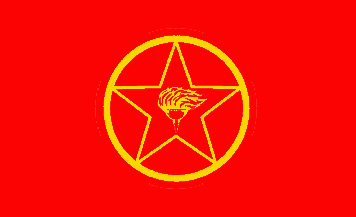Alleged PKK chief rejects German charges as 'misunderstanding'
 Dusseldorf - A man charged with leading the banned Kurdish Workers' Party or PKK in Germany rejected the indictment Monday as a "misunderstanding" and told the court he was a political refugee whose relations had been massacred by a Turkish mob in 1978. German prosecutors told the court he was the leader code-named Colak who ran the secretive Marxist group on German soil till April 2008. The PKK has been outlawed in Germany as a criminal gang because of its violence against renegade former members.
Dusseldorf - A man charged with leading the banned Kurdish Workers' Party or PKK in Germany rejected the indictment Monday as a "misunderstanding" and told the court he was a political refugee whose relations had been massacred by a Turkish mob in 1978. German prosecutors told the court he was the leader code-named Colak who ran the secretive Marxist group on German soil till April 2008. The PKK has been outlawed in Germany as a criminal gang because of its violence against renegade former members.
On the first day of his trial, the accused, 48, said the accusation of leadership of a criminal group was untrue and based on "a big misunderstanding." He is also accused of criminal duress against a Kurdish woman, 21, to force her to abort her unborn child.
If convicted by the court in Dusseldorf, he faces up to five years in prison. He was arrested last July.
Peter Muessig, a federal prosecutor, said the party's decision that a young woman had to abort so that an affair by a PKK official led to no offspring illustrated the dictatorial powers the PKK exerted over its members.
The accused told the court he had lost his right hand in a campaign of mob violence against Alawite Kurds in 1978 where some of his relatives had been killed in bestial fashion.
He asserted the Turkish police and army had not intervened for four days. He said he had spent 21 years in Turkish jails because he had contended the Turkish state was implicated in the 1978 violence.
He said he was freed in 2001 as a cripple, seriously ill after years of mistreatment including torture to the genitals. He had gained political asylum in Germany, but was now "being persecuted all over again," he claimed.
The court has set down 20 hearing days for the case.
German police say the PKK raises money by extortion and drug-running in Germany to finance a guerrilla war at home to make Kurdish regions independent of Turkey. The group is estimated to have 11,500 supporters in Germany. (dpa)